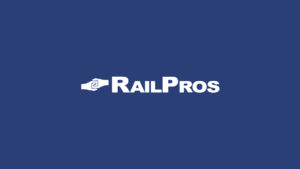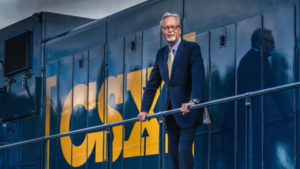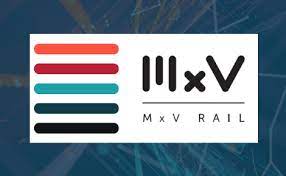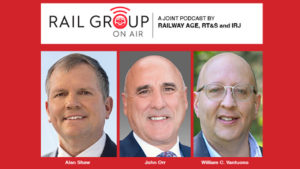Opinion: The seeds of job growth: The Heartland Corridor
Written by jrood(The following column by U.S. Rep. Nick Rahall (D-W.Va.) appeared on the Williamson Daily News website on January 23, 2010. He represents West Virginia's 3rd District.)
The Norfolk Southern rail
line that traverses southern West Virginia will soon see its tracks laden with
double-stacked cargo containers – increasing shipping and freight jobs
opportunities here with the development of a multi-modal port that merges
highway, rail and river on the bank of the Big Sandy in Wayne County. All of
this is thanks to a southern West Virginia home grown enterprise and a small
study undertaken to identify the efficiency of commodities flowing through our
regional economy. From that seed a multi-million dollar project blossomed for
increasing tunnels size and port development.
The American transportation
system is one of our nation’s greatest assets. It is vital to our existence, a
vehicle for achieving the American dream, and a broad boulevard that leads us
beyond our competition in the 21st Century. Here at home in West Virginia, our
economic success begins with transportation investment producing more
advantageous avenues for business and industry to keep and expand jobs.
How do we best grow a national
system of transportation? It begins with the seeds of research, training and
education. Hatching ideas from universities is time honored here in our
country. Higher education is the goose that lays the golden egg for so many
aspects of our economy.
Building upon this notion,
we have created a national network of University Transportation Centers (UTCs).
One of the strong accomplishments of University Transportation Centers is the
practical research they put to work – putting our country to work. Recently, I
was honored to receive the Award for Lifetime Achievement in Transportation
Research and Education from the Council of University Transportation Centers
(CUTC). The council serves as a clearinghouse and coordinating arm of our UTCs
across the country. Our own Bob Plymale, state senator and Rahall
Transportation Institute director, serves as president of this national
council, devoting his time, expertise, and a West Virginia "let’s get the job
done" spirit to the council’s mission.
UTCs connect some of our
nation’s best and brightest minds in the field of transportation research,
technology transfer and education, and work with local governments to address
public needs. The academic institutions, government agencies, industry partners
and organizations involved are modern day pioneers who are forging pathways to
opportunity for the American people.
While each university
center may have a unique mission, together they address our country’s needs for
moving goods and services using highways, railways, waterways and much more.
Supporting our jobs and industry today and to grow tomorrow’s opportunities, we
know depends on our ability and efficiency in connecting people and places.
To foster job growth,
attract industry and find funding resources, we must continue to focus on our
three C’s – Connect, Create, and Communicate. We must create and connect ideas
with research and results. One of the best examples of this is the Rahall
Transportation Institute at Marshall University.
Over 10 years ago, I was a
key architect of the Transportation Equity Act for the 21st Century, known as
TEA 21. In that bill through a $12 million federal grant, I established the
Rahall Transportation Institute (RTI) – a consortium of southern West Virginia
colleges and universities which has included: Bluefield State College; Marshall
University; Marshall University Community and Technical College; Mountain State
University; Southern West Virginia Community and Technical College; and, West
Virginia University Institute of Technology. In the 2005 Transportation Act,
RTI was awarded $16 million in federal investment I secured under the bill. RTI
was responsible for the Heartland Corridor’s study I referenced earlier. Its
mission for Appalachia is clear in its motto, "building jobs through
transportation."
When we come together and
pooling our minds, our experience, our muscle, and yes – our money – we,
resourceful and inspired West Virginians can tackle age-old challenges and
craft creative solutions that will help our region gain and hold a competitive
edge for years to come.





